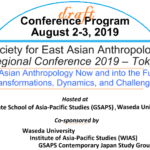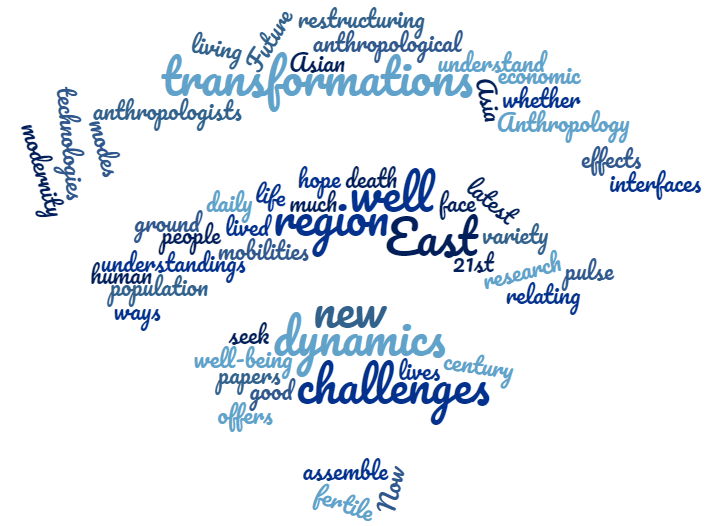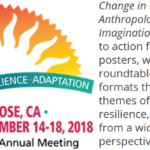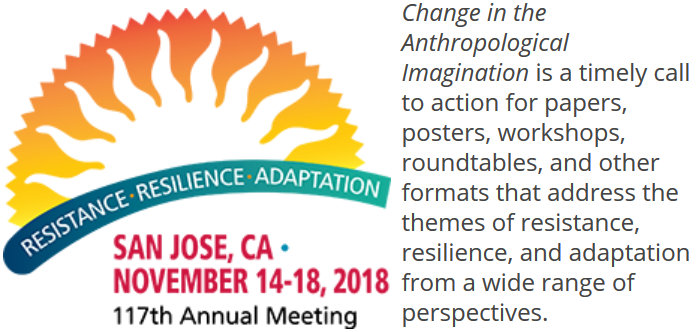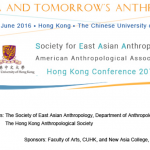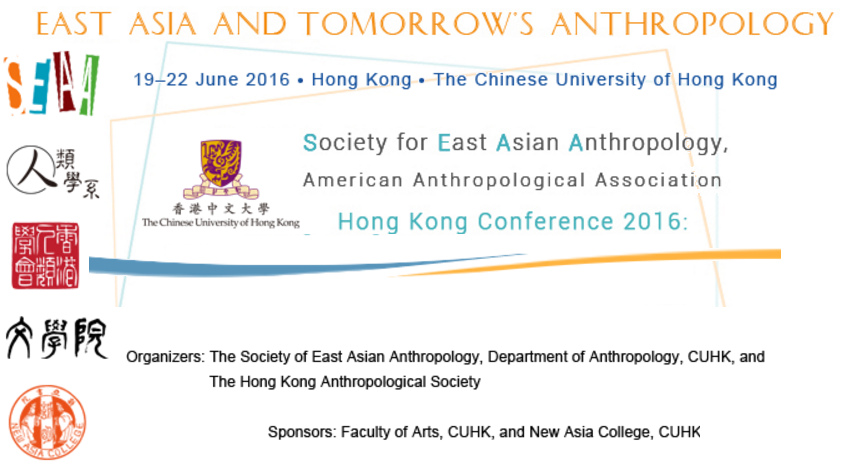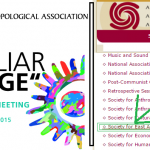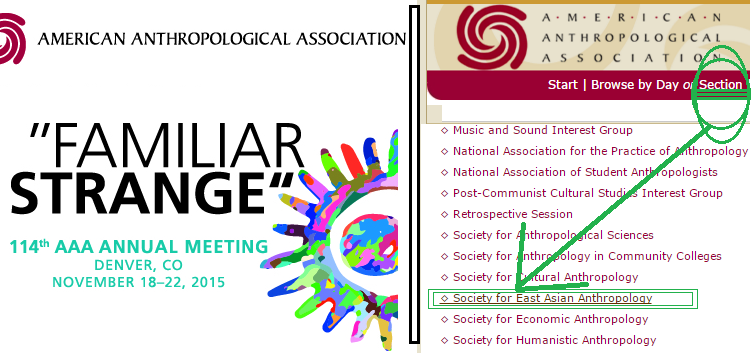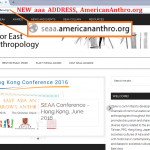Find extended citations from this year’s selection committees for the Francis L. K. Hsu Book Prize and the SEAA Outstanding Graduate Student Paper at https://seaa.americananthro.org/awards/past-seaa-awards/
2021 Francis L. Hsu Book Prize
Winner
Sylvia M. Lindtner. Prototype Nation: China and the Contested Promise of Innovation (Princeton University Press, 2020).
Honorable Mention
Lyle Fearnley. Virulent Zones: Animal Disease and Global Heath at China’s Pandemic Epicenter (Duke University Press, 2020).
2021 Outstanding Graduate Student Paper Prize
Winner
Ruiyi Zhu, Social Anthropology, University of Cambridge
“Aspiring to Standards: Mongolian Vocational Education, Chinese Enterprise, and the Neoliberal Order.”
Honorable Mention
Timothy Y. Loh, Massachusetts Institute of Technology, Doctoral Program in History, Anthropology, Science, Technology, and Society (HASTS)
“Mother Tongue Orphan: Multiculturalism and the Challenge of Sign Language in Singapore.”
S.E.A.A. Statement against Police Violence and Anti-Black Racism
George Floyd. Ahmaud Arbery. Breonna Taylor. Rayshard Jones. Elijah McClain. Walter Scott. Eric Garner. Philando Castile. Alton Sterling. Michael Brown. Trayvon Martin. Tamir Rice. Riah Milton. Dominique Fells. Sandra Bland. Freddie Gray…We will say their names.
The nation is on fire, literally and figuratively, demanding justice for the many black men, women and even children dying at the hands of the police. The Society for East Asian Anthropology adds its voice to this powerful chorus against anti-black violence and systemic racism in the United States. We stand with Black Lives Matter in condemning brutality by the police and others in positions of power against African-American citizens. And we support the statement of the Association of Black Anthropologists.
In his dying moments during his encounter with the Minneapolis police, George Floyd, like Elijah McClain, Eric Garner and scores of others before them, pleaded, “I can’t breathe.” In trying to understand the common experiences of these black men and women as the victims of state violence in the United States, we see them as linked to the victims of similar acts of violence around the world. The SEAA is committed to trying to understand these national and international connections in the context of our own vocational endeavor. The SEAA understands that racism manifests itself in America in some ways that are different from but, in others, tragically consistent with those we witness in East Asia. In both contexts, deep-seated racism and ethnocentrism motivate the often state-sponsored oppression of minority peoples. The genocide of Uyghurs and persecution of Tibetans and other ethnic and religious groups in China; discrimination against Korean, Chinese, Ainu, Okinawan, burakumin, mixed-race and other minorities in Japan; the xenophobic animus directed towards foreign residents in South Korea: all bear witness to this reality. As ethnographers, our recognition of these realities, and our interrogation of them, are inflected according to the uniqueness of the sociocultural, political and historical dynamics of each context. They are further complicated by an intersectional appreciation of how racial and ethnic discrimination are cross-cut by class, gender, sexual orientation and other vectors of social identity and difference in the region, as can be seen, for example, by the post-WWII American military domination of East and Southeast Asia—the empire without colonies—and its consequences in the Philippine, Okinawan, and Korean camp-towns. The post-WWII American militarism in Asia augmented sexual oppression and violence directed against women in Asian countries, which cannot be separated from racial domination, yet it comes with underlining complexity. For instance, we need to address the mass rape and sexual violence committed by the Japanese military against Asian women in the 1930s and 1940s, while we must not set aside mass rape and sexual violence committed by Korean soldiers deployed in Vietnam. It is no coincidence that the African Americans were disproportionately drafted and killed in the Vietnam War. Transitional justice for unresolved violent past in varying frames of colonialism, military occupation and domination, and nationalism, predicated on racial and sexual discrimination and dehumanization of others still lies ahead and it is our responsibility, as scholars, to critically think about race and racism in East Asia in close proximity with what is happening in the US today.
One key way in which the SEAA enters into dialogue with the Black Lives Matter movement, then, is through recognition of the consistent ways in which discrimination operates within both the African and Asian diasporas, and in the intersections of the two. The scars of colonialism, occupation and other forms of white supremacist domination, so visible in the U.S. today, are also visible in Japan, China and Korea, refuting a persistent and pernicious mythology of the irrelevance of race in East Asia. The biopolitical management of black bodies on slave ships, on plantations, in inner cities and in the American prison system in some ways echo the incarceration of Uyghurs in “re-education camps” in Xinjiang. Reports of the forced sterilization of Uyghur women today echo that of Puerto Rican women between the 1930s and the 1970s. The discrimination faced by Africans in China, racially stigmatized as carriers of the novel coronavirus, echoes the white racist abuse hurled at Asian-Americans accused of spreading the “Kung Flu”. The frictions between Korean Americans and African Americans during the Rodney King uprisings, which witnessed the destruction of Korean American businesses in African American communities, or the seeming indifference of Hmong American police officer Tou Thao as George Floyd died, index existing or even create new rifts between the two sets of communities.
The SEAA seeks to enter into dialogue with the Black Lives Matter movement not only by recognizing those tensions within the Afro-Asian encounter but also potential solidarities. These potential solidarities stand on the firm historical ground, for instance, of the Bandung Conference of 1955, in which newly-born Afro-Asian states met in Indonesia to chart their collective futures. They are also seen in the work of such civil rights activists as Yuri Kochiyama, who spent the early part of her life at a Japanese-American internment camp—another example of America’s biopolitical management of suspect non-white bodies—and who, later in her career as a civil rights activist, stood in solidarity with Malcolm X; or in the intellectual corpus of W.E.B. Du Bois who engaged with relations between Asia and Africa. In the present moment, these solidarities have emerged in perhaps unexpected ways. K-pop boyband BTS, which has drawn on traditions of African-American musical production and performance, gave $1 million to BLM, a figure BTS fans have matched. Thousands of protestors—Japanese, white and other allies and black people themselves—have marched through the streets of Tokyo and Osaka chanting, “No Justice, No Peace” and “Black Lives Matter.” Afro-Asian frictions but also solidarities are understood as part of the global political landscape to which the Black Lives Matter movement now belongs.
In order to bring our scholarship more fully to bear on these realities old and new, the SEAA will strive to be critically conscious of and fight against racial prejudice through its research and organizational practice. We consider this one way to express our solidarity with the fight against systemic racism in this country, and the insidious forms this racism may take within academic societies such as our own. To address these concerns, the SEAA members pledge:
- To organize a round-table discussion on race and racism in Asia in the next annual meeting of the American Anthropological Association, with similar discussions potentially held on a regular basis in future meetings.
- To promote the participation of African American and other African diasporic peoples in their anthropological research of East Asia in our home departments and institutions.
- To consciously promote the participation of other racial and ethnic groups traditionally under-represented in the anthropological study of East Asia. These include Latinx and Native American peoples and perspectives. For instance, the SEAA recognizes that a Latinx-Asian scholarship that traverses Latin America and East Asia, or the comparative study of global indigeneities (Native Americans, Taiwanese aboriginal groups, and the Ainu of Japan, for instance), might represent rich arenas for further scholarly research and another dimension of the global solidarity against racial discrimination.
- To promote research and other forms of scholarly reflection comparing the complicities between the colonial and anthropological enterprises as commonly reflected in the African and Asian diasporic experiences.
- To create a culture of inclusion in the SEAA as well as in the home departments and institutions of all members. This includes addressing how white supremacy operates within our Society and in East Asian Studies generally. It includes recognizing how Euro-American epistemologies dominate the discipline, in ways that potentially crowd out other approaches to understanding and exploring the region and its peoples.
- To support lectures, film screenings, and other public events by scholars and artists whose work center on the exchanges between African and Asian diasporic peoples, especially those works that bear an anti-racist concern.
- To encourage and facilitate an ongoing exchange amongst our members in order to develop inclusive syllabi, reading lists, and relevant materials and where possible, create a repository of such materials on the SEAA website.
*download the PDF of the Statement for easier printing (save file as…).
SEAA *final* program, August conference, Tokyo
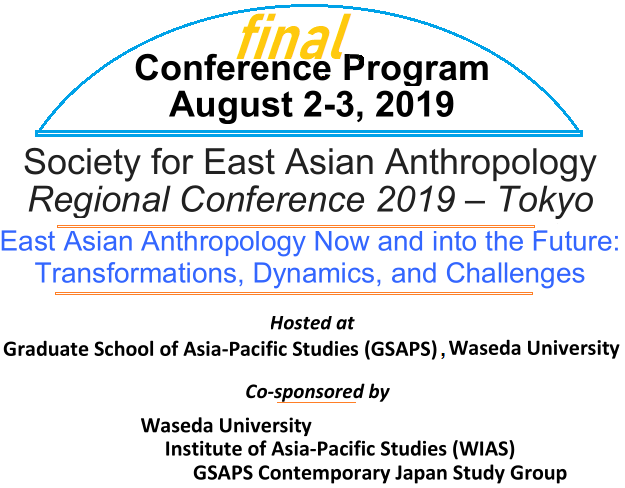
The regional conference hosted at Waseda University in a few days is quickly approaching. The organizers have released the final PDF program to browse, download, or printout. Conference overview is at https://seaa.americananthro.org/2018/11/seaa-regional-conference-august-2019-tokyo/ and the PDF program is here.
SEAA *draft* program, Regional Conference, August
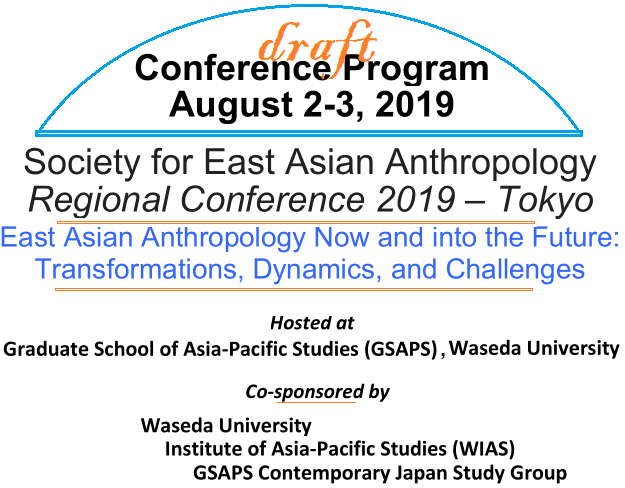
See the PDF draft edition for Day-1 and Day-2 of the upcoming conference in Tokyo. The final printed edition will be distributed on-site, pending travel arrangements of some presenters.
Announcing the SEAA regional conference in August 2019, Tokyo
Society for East Asian Anthropology
Regional Conference 2019 – Tokyo
East Asian Anthropology Now and into the Future:
Transformations, Dynamics, and Challenges
[update 29 April 2019: registration begins on June 1]
The region of East Asia offers a fertile ground for anthropologists who seek to understand the pulse of a new modernity, whether it be the effects of economic restructuring, new modes of living and being, new ways of relating, technologies and human interfaces, population dynamics, understandings of well-being, the life well lived or the ‘good’ death, mobilities in the region, and much more. We hope to assemble a variety of papers from the latest anthropological research on the transformations and dynamics as well as challenges people in the region face as they go about their daily lives in the 21st century.
August 2-3, 2019 hosted at Graduate School of Asia-Pacific Studies (GSAPS) of Waseda University
Conference Aims
The conference aims:
- to provide a platform for anthropology teachers and students and scholars in related disciplines to share their latest research findings;
- to provide an opportunity for building academic networks and for exploring possibilities of research collaboration among scholars and between institutions; and
- to promote anthropology in East Asia.
Organizers
The Society of East Asian Anthropology (SEAA), an officially recognized section within the American Anthropological Association (AAA), consists of close to 400 anthropologists whose primary area of study is East Asia. SEAA is committed to developing international channels of communication among anthropologists throughout the world. It seeks to promote discussion and share information on diverse topics related to the anthropology of Taiwan, PRC, Hong Kong, Japan, Korea; other societies/cultures of Asia and the Pacific Basin with historical or contemporary ties to East Asia; and diasporic societies/cultures identified with East Asia. Its website is https://seaa.americananthro.org/
Call for papers
The Executive Committee of the Society of East Asian Anthropology (SEAA) invites proposals for panels and individual papers to be presented at the conference. All presentations are to be delivered in English.
Proposals for panels or for individual papers should be submitted to seaa.tokyo.2019@gmail.com before February 28, 2019. Results of the selection of papers will be made by March 31, 2019.
Panels:
A panel will consist of either 3 or 4 paper presenters and 1 discussant (non-presenter); however, double-sized panels of up to 8 papers and 2 discussants will also be considered.
To submit a panel, please provide a 200-word abstract for each individual paper and a 200-word statement for the theme of the panel. Only full panels will be considered for acceptance. In middle January an online form to help self-organize panels (interested individual papers seeking fellow presenters to form a full panel) will be hotlinked here.
Individual papers:
To submit an individual paper, please provide a 200-word abstract. We will cluster together papers that broadly fit theoretically. Junior scholars are given priority.
Registration
Registration starts on June 1, 2019. Refer to the information page of instructions here.
Participants will arrange and pay for their own lodging and transportation. Some general advice will be developed for Tokyo at http://bit.ly/about2019seaa-tokyo
Many restaurants near the conference venue are available at lunchtime.
A reception, the cost of which will be included in your registration fee, will be held on Saturday, August 3, 2019.
I look forward to welcoming you at GSAPS!
Glenda S. Roberts, SEAA President
Professor, GSAPS at Waseda University
Tokyo, Japan
AAA 2018 CFP: submission portal open until April 16
Ahead of the AAA submission portal details, below, the SEAA is experimenting with an online form for you to post your title and abstract being proposed in order to discover possible co-presenters. Sessions that are seeking an additional presenter, but also individuals looking for others to form a new session, will be able to see what topics are in play during the run-up to the AAA’s submission deadline. Enterprising individuals or session chairs can use the online form to discover others to work with.
After the AAA’s submission deadline closes and final program decisions are made later in the summer, then the SEAA will again experiment by posting those finalized titles and abstracts online so that Annual Meeting attenders can look ahead to the presentations. And those who can’t be in San Jose in person can also get a glimpse of the line-up, or enter into correspondence with some of the presenters. As well, this online experiment will serve as a kind of archive as years go on.
Therefore, please join this SEAA experiment by going to the google-form to fill-in your individual subject in search of others; to to fill in your session in search of an added presenter:
<><> Supply your presentation information at https://goo.gl/forms/MeRE3fxp7AIEPaq93
<><> After your form is filled, the results will appear at bit.ly/seaa-2018-april
=-=-= ANNOUNCEMENT of AAA Submission Portal =-=-=
The Society for East Asian Anthropology (SEAA) welcomes proposals for the 117th American Anthropological Association (AAA) Annual Meeting, to be held in San Jose, CA from November 14-18, 2018.
Proposals submitted to SEAA for review should explore issues of contemporary anthropological importance and relevance concerning East Asia (including China, Japan, Korea, Mongolia, Taiwan, Hong Kong, other areas of the world with historical or contemporary ties to East Asia, and diasporic societies/cultures identified with East Asia).
Submission/session types may include the following:
> Oral presentation sessions (standard and retrospective)
> Roundtables (standard and retrospective)
> Individually-Volunteered Papers
> Group Gallery submissions
> Individual Gallery submissions, and
> Group Flash presentations.
All presentation types are welcome, but note that organized panels (such as the oral presentation sessions and the roundtables) have a greater likelihood of being accepted on the program. Individually volunteered paper and gallery submissions will be grouped together by the SEAA program committee into cohesive sessions if possible; these sessions will then be evaluated by both the SEAA as well as the AAA’s Executive Program Committees.
The deadline for submission is Monday, April 16 at 3:00 pm EDT (no new submissions will be accepted after 2:00 pm EDT). You must also register and pay for the 2018 AAA Annual Meeting before this deadline.
The online submissions system has been problematic in the past, so please submit your proposals as soon as possible to avoid any potential technical issues.
For more Annual Meeting information and to submit your proposal online to AAA, please visit the AAA 2018 submission portal:
http://www.americananthro.org/AttendEvents/Content.aspx?ItemNumber=1695
We look forward to receiving your submissions and hope to see you in San Jose!
The SEAA 2018 Program Committee:
* Priscilla Song, Program Chair [priscillasong@wustl.edu]
* John Cho [songpaecho@gmail.com]
* Ayako Takamori [atakamori@marylhurst.edu]
* Yukun Zeng [zengy@uchicago.edu]
–Society for East Asian Anthropology
(a section of the American Anthropological Association)
Upcoming S.E.A.A. conference, June 19-22
This year’s regional conference of the Society for East Asia Anthropology is hosted in Hong Kong. Join the conversation about “East Asia and Tomorrow’s Anthropology.” See conference details and refer colleagues and students to http://arts.cuhk.edu.hk/~ant/SEAAconf/
Annual SEAA awards — Book prize, Best Graduate Student Paper, Media work (even-numbered years only)
At the SEAA business meeting at the AAA annual meeting in Denver the winners were announced for Book Prize, Best Student Paper, and (even numbered years) Media Production.
A short description follows, together with a link to the full description by the selection committees.
The 2015 Francis L.K. Hsu Book Prize Winner is Rian Thum. 2014. The Sacred Routes of Uyghur History. Harvard University Press.
Rian Thum’s The Sacred Routes of Uyghur History is an extraordinary accomplishment that advances our understanding of sacred traditions of pilgrimage, local senses of history, and politics of nationalism. The book redefines the fields of Xinjiang history and Uyghur studies in a way that scholars in these fields will now have to take into account…
… Indeed the relative paucity of historical sources on the region in Turkic languages that Thum works with (rather than Chinese) may well be a source for the book’s creative methodology and a reason the book is so good.
Amazon entry, http://tinyurl.com/hsu2015thum
=-=-=-=-=-=-=-=-=-=-=-==-=-=-=-=-=-=-=-=-=-=-=-=-=-=-=-=-=-=
The 2015 Theodore C. Bestor Prize for Best Student Paper was tied between:
“Modeling History: How Chinese Local Officials and Designers Meet in Museums” (Leksa Chmielewski Lee, U.C.-Irvine) and
“Negotiating Masculinities through the Game of Distinction: A Case Study of MOBA Gamers at a Chinese University” (Siyu Chen, U. Oslo)
For this year’s Theodore C. Bestor Prize for Outstanding Graduate Paper, there were 23 applicants. Most of these were remarkably good papers indeed, and could, with a little polishing be publishable within a wide range of anthropological journals. In a unanimous decision the three judges for the Bestor Prize—Sealing Cheng, Joshua Hotaku Roth, and Gordon Matthews— found that three papers stood out for closer comparison. The result was an award tie and one honorable mention.
In a tied vote the judges awarded this year’s prize to Leksa Chmielewski Lee (University of California, Irvine) who wrote “Modeling History: How Chinese Local Officials and Designers Meet in Museums” and to Siyu Chen (University of Oslo) who wrote “Negotiating Masculinities through the Game of Distinction: A Case Study of MOBA Gamers at a Chinese University.”
For honorable mention the judges chose Suma Ikeuchi (Emory University):
“Of Two Bloods: Nation, Kinship, and Religion among Nikkei Brazilian Pentecostal Migrants in Japan.” Like the authors above, this paper is another example of the artful weaving together of ethnography and theory in a whole that transcends the sum of its parts.
Full discussion and description by selection committees [Annual Awards 2015 from SEAA: MS-Word document downloads to view or print]
S.E.A.A. annual business meeting & awards
This year’s theme is at the heart of the anthro project – making the familiar strange (and the strange familiar)
Our annual business meeting takes place at 7:45 p.m. Friday, November 20.
The room location does not display online, but on-site you should have all session room locations.
Come to learn this year’s awardees:
—Francis L.K. Hsu Book Prize
—Theodore C. Bestor Prize for Outstanding Graduate Paper
—David Plath Media Award
4-1560 SOCIETY FOR EAST ASIAN ANTHROPOLOGY (SEAA) BUSINESS MEETING
Organizer: Li Zhang (University of California – Davis)
See the full list of SEAA sessions in the online program, “browse by section”
https://aaa.confex.com/aaa/2015/webprogrampreliminary/SEAA.html
SEAA has new URL
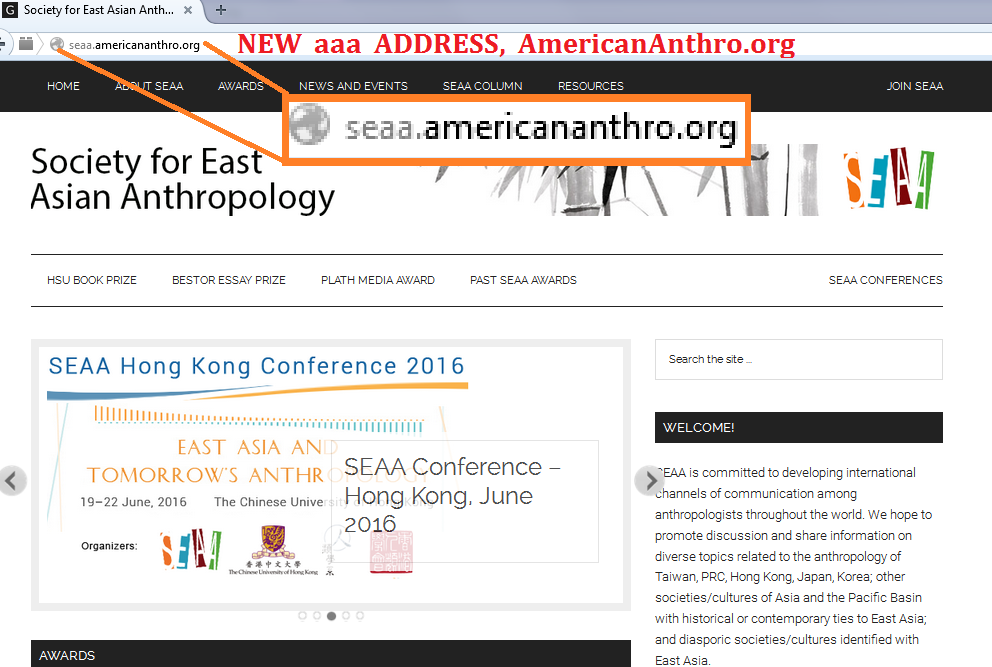
new URL starting Oct. 15
Our parent association, the American Anthropological Association, has revised its website with the address “AmericanAnthro” at www.americananthro.org and so, too, of the many sections the URL has changed, as you see in your address bar above.
During the transition your bookmark to the old address will automatically take you to the new one: https://seaa.americananthro.org

